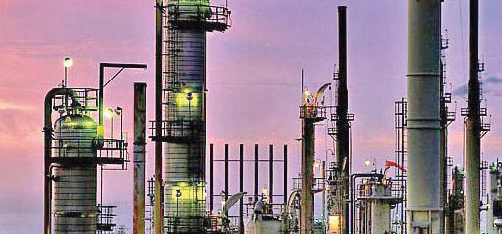
As the country feels the pressure on its balance of payments, oil refineries have blamed the former Pakistan Peoples Party-led government for allowing excessive imports of high speed diesel (HSD) and spending $600 million in March alone.
“Excessive diesel imports in the midst of a glut in the domestic market have exerted extra pressure on the foreign exchange reserves. The government has already been feeling the strain because of loan repayments to lenders, particularly the International Monetary Fund (IMF),” said an official of the Ministry of Finance.
According to ministry officials, domestic oil refineries, fearing forced closure, have protested against more-than-required imports of diesel by state-run oil marketing giant Pakistan State Oil (PSO) despite hefty supplies in the country. The refineries termed the imports contrary to the decision of the Economic Coordination Committee (ECC).
According to an ECC decision, PSO should first purchase oil from domestic refineries before going to the international market.
In their letters to the government, the refineries pointed out that PSO had imported about 210,000 tons of diesel in the first 20 days of March compared to a deficit of only 50,000 tons.

Industry sources say PSO normally keeps stocks for around 21 days, but the level has now increased to more than 50 days following heavy imports in recent weeks. As a result, oil stocks of domestic refineries are going up.
“This has risked closure of refineries as PSO is the largest buyer of their products,” the ministry official said.
According to National Refinery Limited, one more consignment of 50,000 tons is in the pipeline which will arrive before the end of March.
“This has caused problems for the refineries. We once again request for rationalising the inflow of diesel so that local refineries’ operations are carried out at the desired level, ensuring availability of HSD, (jet fuels) JP-1 and JP-8 as well as all other products,” said NRL in its letter.
Byco refinery, in its March 19 letter to the Ministry of Petroleum and Natural Resources, said, “We note with concern that against a deficit of just 49,000 tons, an import of 250,000 tons of HSD has been planned for March.”
Likewise, for April, import of 200,000 tons has been planned compared to the deficit of 138,500 tons, it said.
“An average of 260,000 tons (in excess of the deficit) is being imported during these two months, which is in contravention to the recent ECC decision,” Byco said, adding this brought down demand for oil produced by domestic refineries, forcing them either to reduce output drastically or shut down periodically.
Talking to The Express Tribune, a PSO spokesperson said the company was importing oil products according to market requirements besides purchasing allocated volumes from domestic refineries keeping in view the crop harvesting season, which is about to start shortly.
“Usually, inventory is built at all locations in February and March to meet a surge in demand during harvesting, avoid shortage and benefit the agriculture sector,” the spokesperson said.
“Demand for oil during the season remains so high that meeting it from designated prime source locations is not possible and, therefore, stocks are built at all locations to ensure timely availability of the product in the market.”
PSO sources HSD supply only from domestic refineries and Kuwait Petroleum Corporation (KPC). The company has a long-term contract with KPC and is required to lift minimum contractual volumes.
NRL was supplying its products to other oil marketing companies, except for PSO, therefore, PSO could not comment on its inventory build-up, the spokesperson said.
Commenting on Byco, the spokesperson said Byco-2 (its second refinery) had declared production of 145,000 tons and 217,000 tons in March and April respectively, though the company had so far informed the Oil Companies Advisory Committee (OCAC) about bringing only one crude oil cargo of 65,000 tons in April.
“It is beyond comprehension how Byco-2 could supply the above mentioned output for March without importing crude oil and also in April with one crude oil cargo,” the spokesperson asked.
Published in The Express Tribune, March 26th, 2013.
Like Business on Facebook to stay informed and join in the conversation.
1732498967-0/Outer-Banks--(1)1732498967-0-405x300.webp)
1732086766-0/BeFunky-collage-(74)1732086766-0-165x106.webp)



1732486769-0/image-(8)1732486769-0-270x192.webp)











COMMENTS
Comments are moderated and generally will be posted if they are on-topic and not abusive.
For more information, please see our Comments FAQ